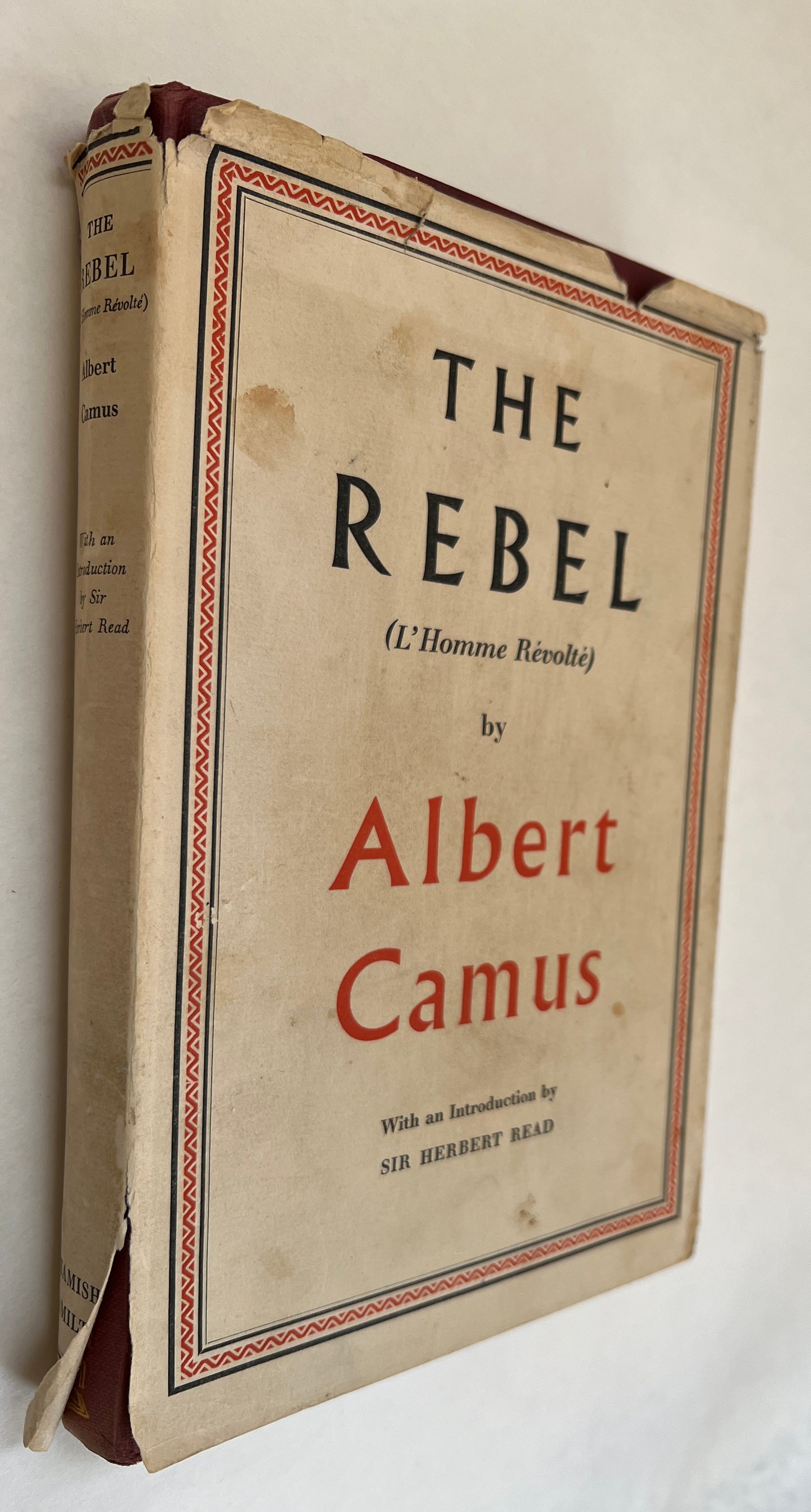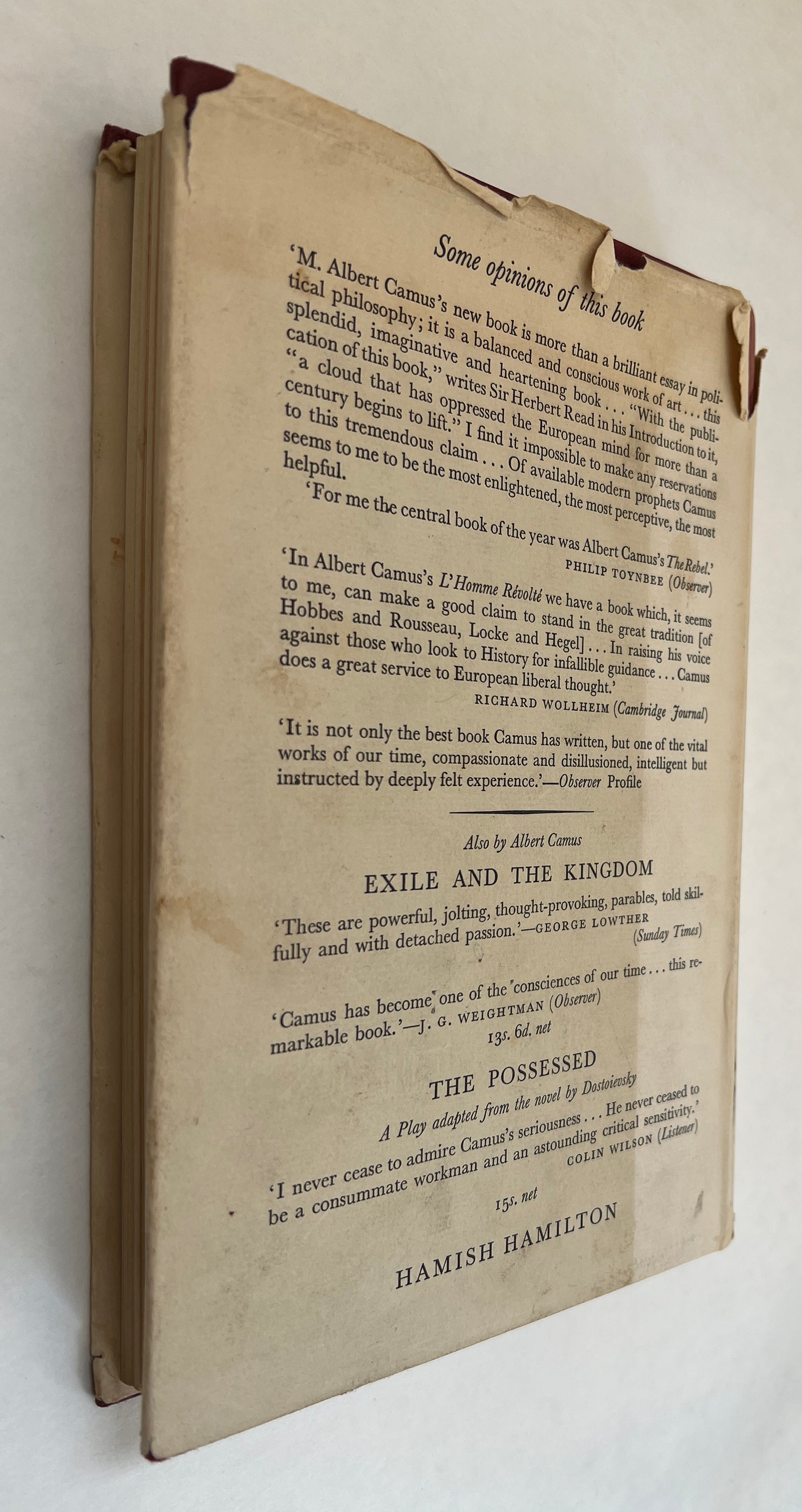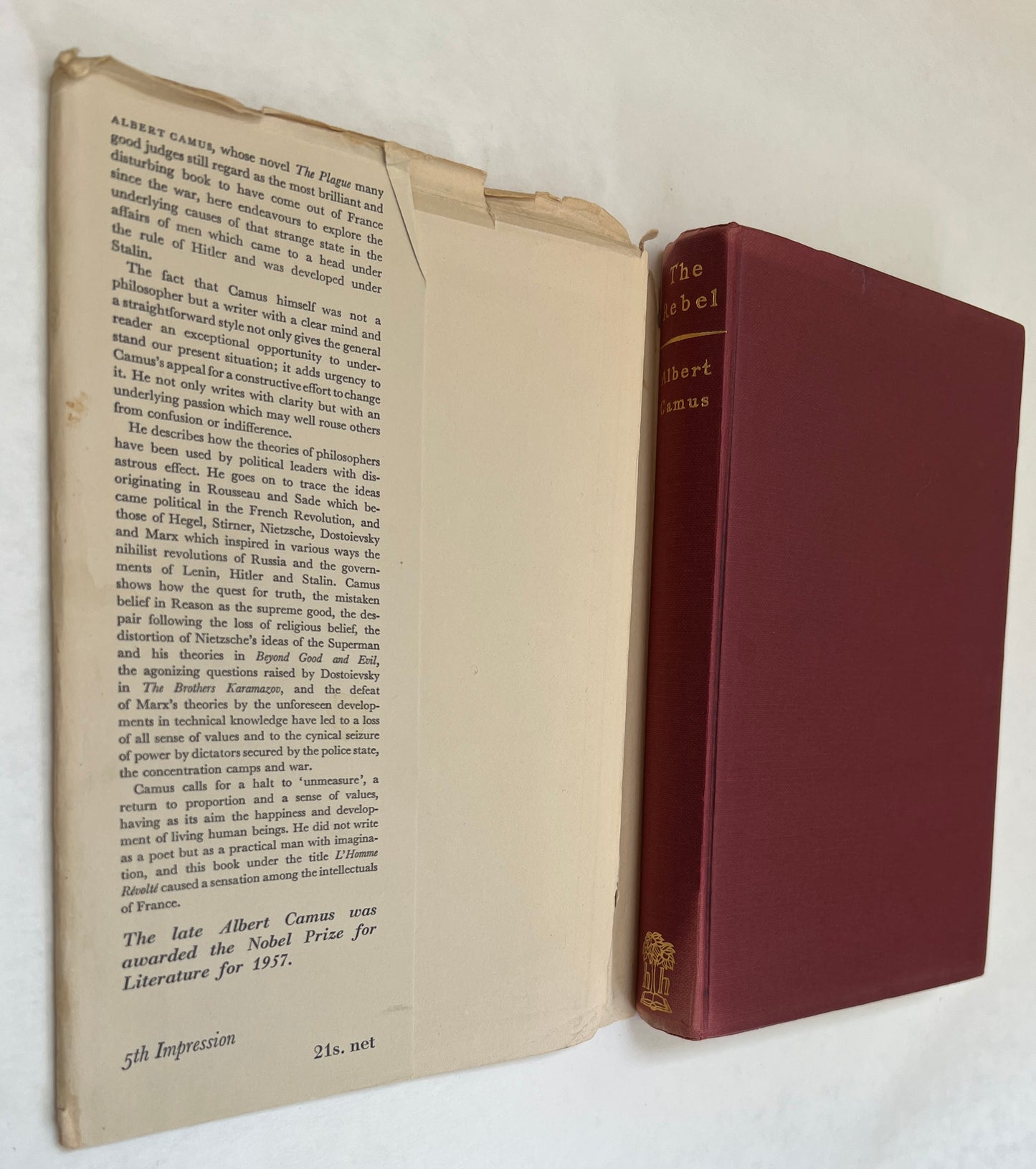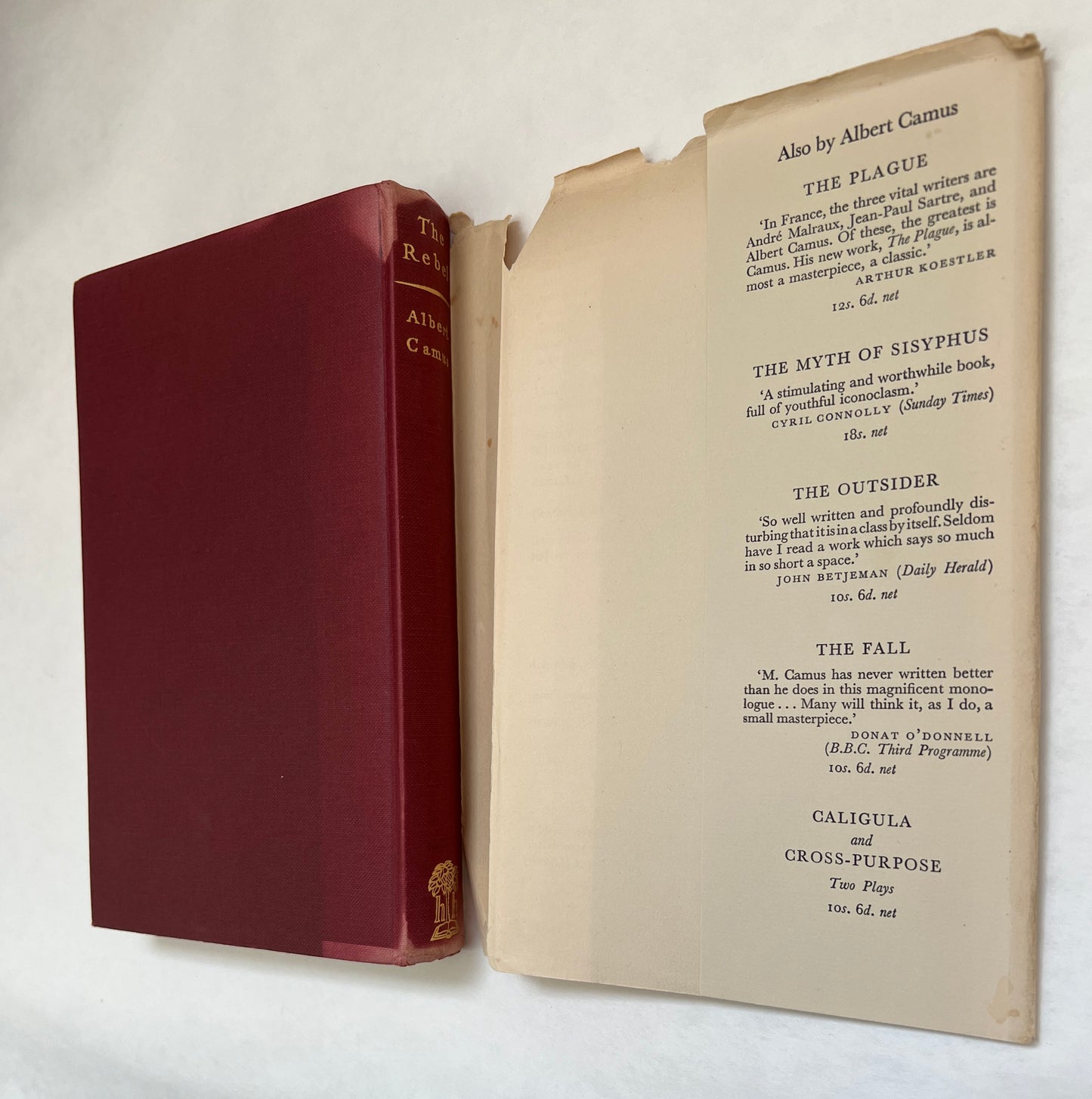Camus, Albert; Bower, Anthony (trans)
The Rebel
The Rebel
No se pudo cargar la disponibilidad de retiro
London: Hamish Hamilton, 1960 (1953). Fifth impression (stated) of the first English language edition. Royal octavo in polished maroon cloth, cream jacket; 273 pages; 22 cm. Personal owner signature to front free endpaper; board extremities partly sunned, else a very good copy in a moderately soiled and edge-worn good(+) jacket, with a few closed edge-tears and chips, now in archival mylar. Hardcover. ISBN:
Translation of: L'homme révolté. "The Rebel (French: L'Homme révolté) is a 1951 book-length essay by Albert Camus, which treats both the metaphysical and the historical development of rebellion and revolution in societies, especially Western Europe. Examining both rebellion and revolt, which may be seen as the same phenomenon in personal and social frames, Camus examines several 'countercultural' figures and movements from the history of Western thought and art, noting the importance of each in the overall development of revolutionary thought and philosophy. He analyses the decreasing social importance of king, god and virtue and the development of nihilism. It can be seen as a sequel to The Myth of Sisyphus, where he ponders the meaning of life, because it answers the same question, but offers an alternative solution. Camus... relates writers, artists, politicians and revolutionaries as diverse as Karl Marx, Friedrich Nietzsche, Georg Wilhelm Friedrich Hegel, Marquis de Sade, Louis Antoine de Saint-Just, Arthur Rimbaud, Mikhail Bakunin, Vladimir Lenin, Sergey Nechayev, Jean-Jacques Rousseau, Adolf Hitler, Max Stirner, André Breton, Ivan Kalyayev, Joseph de Maistre, Comte de Lautréamont, Lucretius, Epicurus, Max Scheler, Fyodor Dostoevsky and Dmitry Pisarev in an integrated, historical portrait of man in revolt. Fred Rosen has examined the influence of ideas of Simone Weil on Camus' thinking in The Rebel. According to him, Camus adopted her criticism of Marxism and her conception of the rebel as an artisan. George F Selfer has analysed parallels between Camus and Friedrich Nietzsche in philosophical aesthetics and found significant similarities and profound differences."—Wikipedia. Arguably one of the most influential French works of the 20th Century.
Compartir








